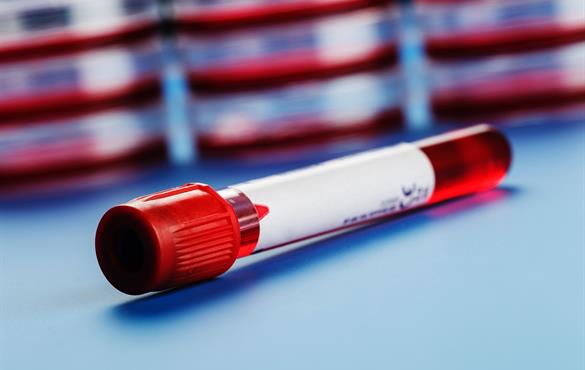Pioneering biopreservation method to focus on kidney, prostate cancers
A low-cost method of transporting biological samples developed by Washington University in St. Louis researchers may lead to more accurate diagnoses of kidney and prostate cancers

When clinicians collect biological samples from patients away from a traditional hospital setting, the samples must be kept cold while being transported to a lab. In addition to being expensive, this method is not always available or reliable, putting the integrity of the samples at risk and raising the likelihood for significant error with consequent misdiagnosis.
An interdisciplinary research team at Washington University in St. Louis has been developing a low-cost alternative preservation method using nanotechnology that does not require any refrigeration. Srikanth Singamaneni, a professor in the McKelvey School of Engineering, and Jeremiah Morrissey, a research professor of anesthesiology at the School of Medicine, will validate their novel preservation method using biomarkers for kidney and prostate cancers with a three-year, $550,000 grant from the National Cancer Institute of the National Institutes of Health.
Singamaneni and Morrissey use an emerging class of nanoporous materials known as metal-organic frameworks (MOF) that form a protective layer around proteins and other biomolecules in a sample of blood, urine, serum or plasma, essentially shrink-wrapping the biomarkers and preserving them regardless of temperature. With this funding, they will test the MOFs with perilipin-2 and aquaporin-1, protein biomarkers for kidney cancer in urine, and prostate-specific antigen and circulating miRNA, miR-141, an emerging molecular biomarker, for prostate cancer in serum.
"We hope to complete the evaluation of the technology for these two cancers and look at these four biomarkers," said Singamaneni, a materials scientist in the Department of Mechanical Engineering & Materials Science. "With that, we will have validated the technology, and the stage would be set for broader application."
To test their method, they plan to use samples from about 30 patients with prostate cancer under the care of Gerald L. Andriole Jr., MD, the Robert Killian Royce, MD, Distinguished Professor and Chief, Division of Urologic Surgery, at the School of Medicine and a co-investigator on the project. In addition, they will test samples from 30 patients with documented kidney cancer.
Singamaneni and Morrissey will test the MOFs with two methods: the first will preserve the sample in their liquid state, and the second involve drying the MOF crystals on a piece of filter paper. The paper can then be transported to a lab — or even mailed —without concern for temperature. The biomarkers can be extracted from the paper when ready for testing. The team published its preliminary results with the paper method in 2018.
"There are certain counties in Illinois that have a higher incidence of kidney cancer than adjacent counties," said Morrissey, also of the Division of Clinical and Translational Research, who co-discovered a pair of proteins excreted in the urine that have the potential to detect about 90 percent of all kidney cancers. "This technology would enable clinical workers to go to rural areas and collect samples and bring them back to a central lab for analysis without the need for refrigeration."
The method would also be feasible for urban clinics in resource-limited settings with high incidences of cancer, he said.
Singamaneni and Morrissey have maintained a cross-campus collaboration on this and related biodetection technologies for nearly 10 years and have published more than 20 papers together. Previously, they validated the MOF method with biomarkers for general kidney disease in urine and for the ovarian cancer biomarker CA-125 in serum. They are working with the university's Office of Technology Management to patent their pioneering technology, and Morrissey plans to present the research at an international conference in the fall.




